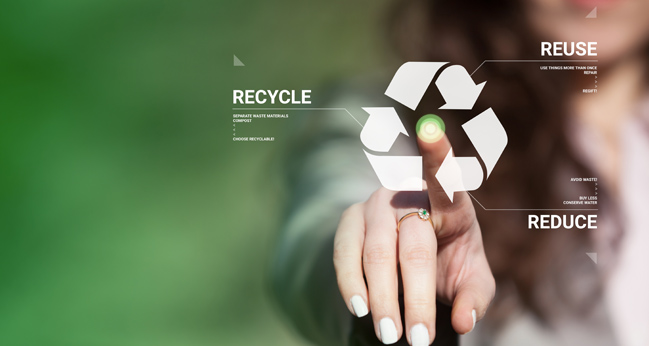Reduce, Reuse, Recycle!
In the initial days of economic and industrial development, there existed a common notion that for such development to occur, the environmental interests have to be set aside. With the development of ground-breaking technology over the years, the environment does not need to be in jeopardy anymore for the sake of economic or industrial development. The sustainable model of development has been discovered for this purpose. This mode of development protects the interests of the environment and promotes economic and industrial growth at the same time. It revolves around the golden principle of Reduce, Reuse and Recycle and includes procedures such as rain-water harvesting, sewage recycle, effective waste-management, usage of renewable sources of energy and the like.
Let us take a look at some of the remarkable residential societies in India who have successfully implemented these procedures for the sake of a brighter and greener future:
Houses in Muttukkadu:
While sewage recycling is still a problem in most parts of India, in Muttukkadu, almost all the houses are built over a sewage treatment plant. In these sewage treatment plants, the waste is treated by using German technology. The wastewater goes through a precise sequence of aeration, sedimentation and, the removal of clear water. What is special is that the entire procedure does not lead to the production of any kind of odor.
For more information, visit:
https://www.thehindu.com/features/homes-and-gardens/design/a-sewage-treatment-plant-for-every-home/article4749698.ece
Garden Estate in Gurugram:
This housing complex has set out a remarkable example for housing societies all across India in the field of waste management. With a setup that cost them only Rs. 50000, this society processes almost 240 kilos of waste everyday originating from almost 2000 residents. There are three different bins for waste- the green one is for kitchen waste, the red one for non-degradable disposables and the white one for the recyclable materials. Moreover, the sewage treatment plant of this society generates around 75,000 litres of water every day and the weekly surplus water is donated to a nearby biodiversity park.
For more information, visit:
https://www.youtube.com/watch?v=zd4D43KUyxk
Roseland Residency in Pune
In the Pimple Saudagar region of Pune, the housing societies often end up spending lakhs of rupees for the construction and maintenance of tankers to store water. The Roseland Residency has successfully cut off such unnecessary expenditures by investing in an effective rain-water harvesting system that serves around 1000 flats in 30 buildings. The other housing societies, like Kunal Icon housing society, have adopted the same procedure.
For more information, visit:
https://timesofindia.indiatimes.com/city/pune/pimple-saudagar-society-uses-rainwater-harvesting-to-beat-water-woes/articleshow/57696782.cms
These housing societies or communities have set forward an excellent example for India by adopting sustainable modes of development. Such methods make these societies independent, self-sufficient and eco-friendly at the same time. Moreover, such methods have proven to reduce expenditures in a significant manner too. It is high time that we protect the environment and adopting sustainable development methods in your very own housing societies or communities is the best place to start with. As they say, charity always begins at home.
